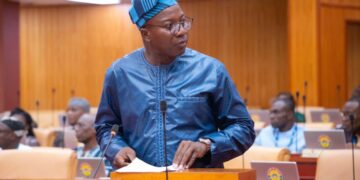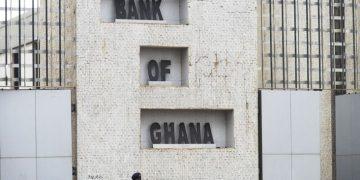Former COCOBOD Chief Executive Officer Joseph Boahen Aidoo has broken his silence since leaving office. He has offered a strong defense of his administration’s financial decisions and cautioned against a looming crisis in Ghana’s cocoa sector.
In an exclusive interview, Aidoo addressed the controversial GH₵32.5 billion debt figure, pushing back against claims of financial mismanagement. He argued that the debt—accumulated by both his administration and the previous NDC government—was a strategic necessity, not recklessness.
“We inherited significant challenges. When we assumed office in 2017, there was no money to kick off the 2017/2018 cocoa season. The previous government had drawn down the entire US$1.8 billion syndicated loan, leaving behind empty coffers.”
“History must remember that our actions helped avert the collapse of Ghana’s cocoa industry—not that we incurred debt,” Aidoo revealed.
He detailed the fiscal pressures his team faced: a depleted budget, a shortfall in cocoa deliveries, and a drastic drop in global cocoa prices. Only 611,763 metric tonnes had been secured by the end of 2016—well below the projected 900,000 tonnes.
“There were no funds to pay farmers or suppliers, and the global market had taken a 30% hit. We had to act swiftly,” he said.
To stabilize the sector, Aidoo’s administration turned to short-term cocoa bills, raising GH₵2.2 billion in high-interest financing to purchase over 355,000 tonnes of cocoa and support critical operations. While controversial, he insists the move was essential.
“Labelling this as reckless is disingenuous. It was a lifeline for the sector. Without those funds, Ghana’s cocoa economy would’ve come to a standstill,” Aidoo argued.
He also urged observers to look at COCOBOD’s revenue-generating power when evaluating its debt. With annual cocoa earnings exceeding $2 billion, he believes the institution can manage structured debt effectively.
The former CEO indicated one of the most transformative shifts under his leadership: Ghana’s historic decision in the 2024/25 season to forgo syndicated loans after 32 years of external borrowing. Contrary to claims that COCOBOD was disqualified from accessing loans, he revealed that offers were on the table—but his team made a bold choice.
“We said no. For the first time in decades, we walked away from dependence and charted our own course. That’s not failure—that’s economic sovereignty.”
Under the new model, Licensed Buying Companies (LBCs) purchase cocoa directly, and the Cocoa Marketing Company (CMC) sells it through forward contracts. Payments, received in U.S. dollars and converted via the Bank of Ghana, have saved Ghana an estimated $150 million in interest and fees this year alone.
Despite these strides, Boahene Aidoo issued a stern warning: cocoa smuggling is on the rise, especially following Côte d’Ivoire’s recent 22.24% hike in producer prices. He estimated that up to 120,000 tonnes of cocoa—worth $600 million—could be smuggled across the border before any financing arrives.
He criticized COCOBOD’s recent decision to scrap incentives for whistleblowers and law enforcement officers, a policy he believes helped curtail smuggling in the past.
“That decision isn’t just short-sighted—it’s dangerous. We’ve disarmed the very people who helped protect this vital industry.”
The former COCOBOD CEO made a passionate call for national unity in defending Ghana’s cocoa economy, urging leaders across the political divide to act with urgency.
“This isn’t about party politics—it’s about the lives of over 800,000 farmers, our national pride, and food security. We can’t afford to wait,” he stated.
Aidoo stood by his administration’s decisions with conviction, framing them as acts of leadership in crisis.
“We made tough calls not because they were easy—but because they were necessary. That’s what true leadership looks like,” he added.




















































































